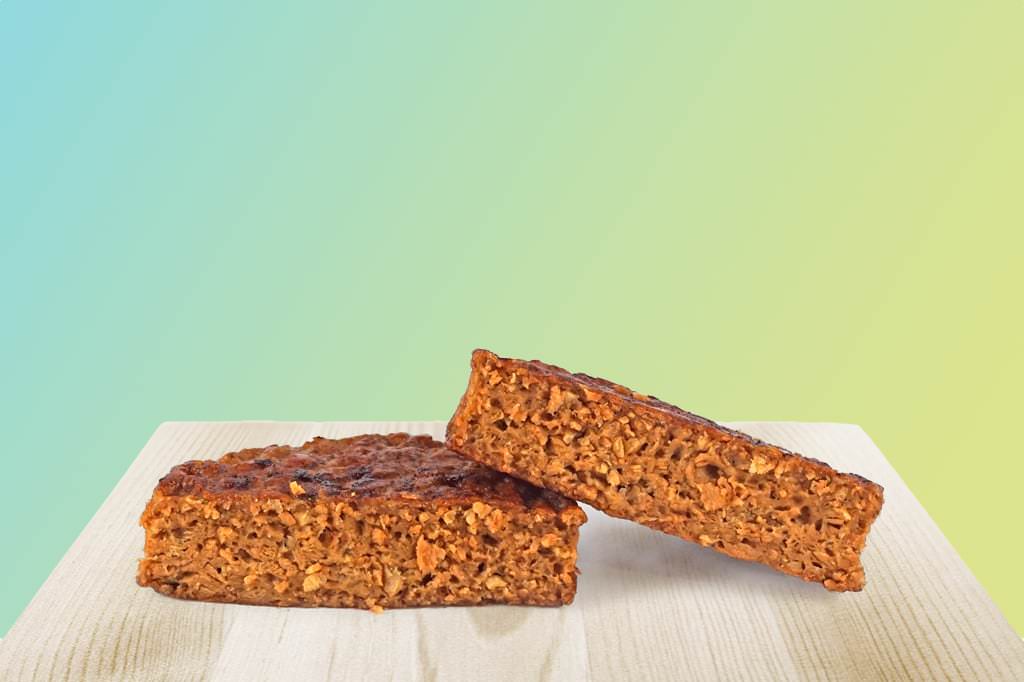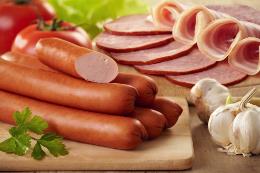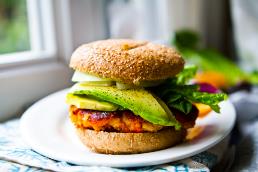Food
Plant-based
TYLOPUR® and METOLOSE® provide a strong bite in plant-based products.

Plant-based products such as vegan burgers or vegetarian sausages often lack the texture and bite of meat containing products due to the lack of animal protein. Therefore, special ingredients are needed to provide a perfect bite. METOLOSE® and TYLOPUR® are such important vegan ingredients. In low dosages, METOLOSE® and TYLOPUR® are responsible for a strong hot bite and a meat-like texture. Therefore, these ingredients are beneficial for high quality plant-based foods that are consumed hot.
Empfohlene Produkte
| Marken | Beschreibung | E-Nummer | Herkunft | Empfehlung | Knowledge Base | |||||||||||||||||||||
|---|---|---|---|---|---|---|---|---|---|---|---|---|---|---|---|---|---|---|---|---|---|---|---|---|---|---|
| TYLOPUR® MCE-100TS | Methyl cellulose | FSSC 22000, E461, FCC, GRAS | Germany | Sehr geeignet | Auswählen | |||||||||||||||||||||
| ||||||||||||||||||||||||||
| TYLOPUR® MCE-250T | Methyl cellulose | FSSC 22000, E461, FCC, GRAS | Germany | Sehr geeignet | Auswählen | |||||||||||||||||||||
| ||||||||||||||||||||||||||
| TYLOPUR® MCE-4000 | Methyl cellulose | FSSC 22000, E461, FCC, GRAS | Germany | Sehr geeignet | Auswählen | |||||||||||||||||||||
| ||||||||||||||||||||||||||
Best Bite in your Plant-Based Meat

More consumers are choosing plant-based meat alternatives when grocery shopping or eating out than ever before. That growing demand is creating great opportunities — but also some formulating challenges. As a result, the market is yearning for innovative forms of plant-based food, but only for those with a certain familiar texture and taste.
Meat based on plants is becoming more popular
Sales of meatless alternatives are growing rapidly as consumers seek vegetarian burgers, egg-free meat balls and plant-based sausages - alternatives that come with less guilt. Plant-based is seen by the consumer not only as more sustainable, but also as healthier, more humane, and on trend. Consequently, companies large and small are listening to consumers and making large scale investments into this meatless category. Based on these trends within the CPG world, the plant-based meat market is expected to reach ten times its current size by 2030.
In addition to these concerns, the COVID-19 pandemic has impacted consumer eating habits to a degree. The pandemic has heightened awareness around general health and well-being, leading many consumers to scrutinize their choices more thoroughly to make healthier choices regarding personal and family dietary needs. As meatless is often seen as the healthier alternative to traditional farmed meat regarding nutritional value, the plant-based market benefited greatly from this trend.
The plant-based target group
Somewhat counterintuitively, growth within the plant-based meat category is not being driven by vegetarians, but by flexitarians. Per polling data, 82 % of consumers who eat meat alternatives also eat conventional meat on a weekly basis. This indicates growing mainstream acceptance of meatless alternatives — and bigger and broader opportunities for manufacturers. Most successful are plant-based meat alternatives, which seek to precisely replicate the taste and texture of traditional meat dishes.
More and more flexitarians are choosing these plant-based meat alternatives to satisfy their craving for traditional meat with less of a guilty conscience and more of a health halo – both from an environmental and personal perspective. As such, the market for plant-based meat grows and becomes more specialized with each passing year. In the past, meatless burgers, nuggets, or sausages might be the only options in a tiny corner of the grocery store but now one may find shelf space devoted to plant-based tuna alongside vegan egg substitutes and meatless deli slices.
Plant-based meat: Sustainable and healthy

One of the main factors for consumers opting for plant-based meat is that it has been proven to be a more sustainable alternative. The reduction of traditional meat farming associated with consumers choosing more meatless alternatives will have a large impact on climate change. Studies show that livestock farming is currently responsible for about 15% of greenhouse gas emissions worldwide, which is more than the entirety of the global transportation sector.
In detail, plant-based alternatives generate 89% less greenhouse gas emissions on average when compared to beef, reduce pollution leading to eutrophication by around 80%, reduce cruelty to animals by 100%, require around 95 % less water, 100% less antibiotics, and around 95% less farming land. Of the current land devoted to agriculture, 77% is used for livestock and their feed. With an entirely plant-based diet, we can produce an equivalent amount of protein using less than 40% of the current farmland and reduce our encroachment upon nature.
Plant-based vs animal meat
Creating plant-based meat is no easy feat with approximating the taste and texture of animal protein among the biggest and most daunting challenges for developers. Plant-based alternatives are made with proteins derived from a variety of vegetables and legumes which have an entirely different functionality in nature when compared to those of animals.
Animal meat is mainly composed of functional muscle proteins which are elastic and stiff. Plant-based proteins, in contrast, are mainly storage proteins which are entangled and less functional overall. Therefore, plant-based products made with proteins derived from pea and soy alone will not have the strong bite characteristic of animal protein without the help of certain functional ingredients.
To mimic the texture and bite of meat, most meatless alternatives utilize a proprietary blend of plant-based proteins and special ingredients. In plant-based products such as cold cuts that are not subjected to heating by the consumer, carrageenan is often used as a texturant. This ingredient forms a gel in low concentration, thereby creating a meat-like bite in cold applications.
Why is methylcellulose so important?
In products designed to be cooked and served hot, meatless and egg-free products such as plant-based burgers and sausages mostly utilize an ingredient called methylcellulose with a unique gelling functionality. This hydrocolloid gels in high temperatures approximating the texture of animal protein and creating the best bite when used in products designed to be eaten hot. Due to this special gelation property unique to methylcellulose, most commercially produced plant-based burgers and meat free nuggets contain this highly functional ingredient.
Methylcellulose and TYLOPUR®

In plant-based burgers, the functional ingredients are primarily plant-based protein working in concert with methylcellulose. Textured vegetable proteins are often used to approximate the mouthfeel of ground meat in concert with an emulsion containing methylcellulose. This high viscosity methylcellulose emulsion builds a network between the proteins and binds them together.
How does methylcellulose work?
During heating, the emulsion containing methylcellulose gels and provides the consumer the best bite while enjoying their no meat burgers. With the unique functionality of methylcellulose, no egg or other animal-based ingredient needs to be added to the finished product. In addition to being vegan, one can also create both an egg-free and allergen-free food with the best bite.
A methylcellulose produced in Germany is TYLOPUR®, widely known for its high quality. TYLOPUR® has the unique property of increasing viscosity when heated. This thermal gelation causes the strong bite of meatless products containing TYLOPUR® making it the perfect product for developers to create the desired meat-like and egg-free texture with the best bite in heated vegan and vegetarian foods.
The different grades of TYLOPUR®
Widely used in plant-based meat are the TYLOPUR® MCE-100TS and the TYLOPUR® MCE-4000. The TYLOPUR® MCE-100TS shows the strongest gelation and therefore creates the strongest bite within the meatless alternative category. While it does provide the best bite, TYLOPUR® MCE-100TS does require a cooling step to provide optimal functionality. If this is a challenge for a developer during processing, one can use TYLOPUR® MCE-4000 as an alternative.
This grade of methylcellulose has the advantage of being more flexible during processing while still providing superlative texture. With TYLOPUR® MCE-4000, it does not require the same degree of cooling in order to be fully hydrated during preparation of the emulsion binder. Either grade of TYLOPUR® will help you to provide the best bite for your products and your consumers based on your unique processing needs.
The best plant-based fried sausage with TYLOPUR®
You are looking for a great recipe to create plant-based fried sausage?
Here you will get to know how to create a plant-based sausage with perfect hot bite. Furthermore you will see why TYLOPUR is the best ingredient to create a great structure in different food products.
Plant-Based Nuggets with TYLOPUR®
In this video you will get to know a great recipe to create plant-based nuggets with best bite.
TYLOPUR® creates great textures and a perfect hot bite for vegan and vegetarian products such as vegan nuggets, vegan burgers and more.

Next area of application:
Cost-effective meat
METOLOSE® provides a strong bite and meat-like texture to cost-effective meat products.
